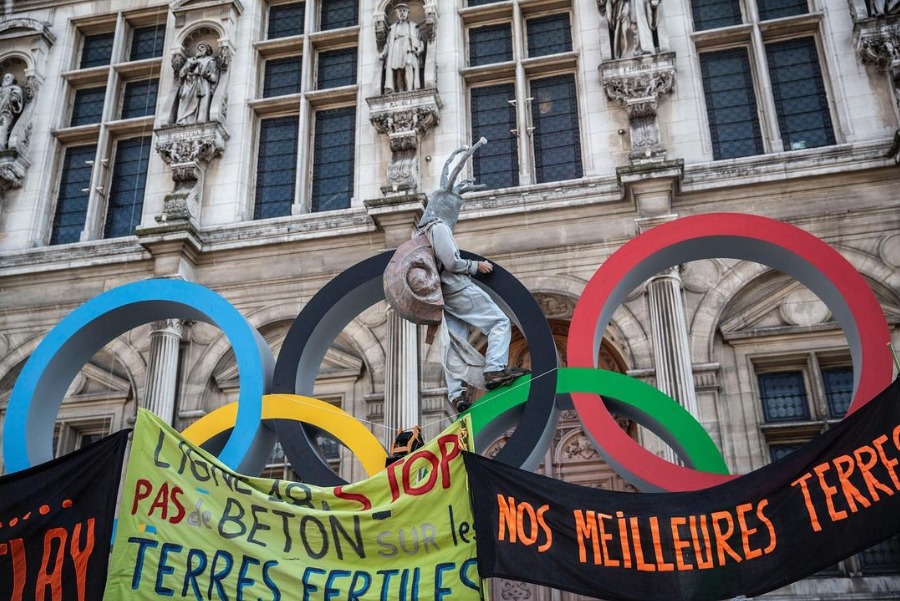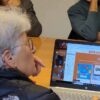Paris and the Seine-Saint-Denis department are being greened up ahead of the 2024 Olympic Games. This process, simple in theory, is proving more complex in practice, to the great displeasure of residents.

For the past three years, a group of Parisians known as Saccage Paris have been protesting what they describe as the “wreckage” of the French capital by its current mayor, Anne Hidalgo. A similar movement has now been created against next year’s Olympic Games, driven by the collective Saccage 2024.
Emblematic sites of the capital are being turned green to welcome the games next summer, including the Champs-Elysées and the Trocadero. The Paris ring road will also be transformed by 2030, reducing the number of traffic lanes. 90% of users who took part in a consultation carried out by the region were against this project, expressing concerns about traffic flow.
The Seine-Saint-Denis issue
In Seine-Saint-Denis, the rejection of the residents is even greater. The poorest department in mainland France is hosting a large part of the Olympic construction sites, including the media village, the Olympic village and the aquatic centre.
Greening projects should be welcome in a city like Aubervilliers, where each inhabitant only has 1.30m² of green space compared to the 10 considered necessary. Yet, the residents feel deprived of their existing green spaces in favour of new vegetation projects.
At the Jardins d’Aubervilliers, where workers grow their own vegetables, 4,000m² of land was supposed to be replaced by a solarium. In February, activists succeeded in having the project abandoned but several thousand square metres are still threatened by the Fort d’Aubervilliers construction site.
Grand Paris Aménagement, who owns the land, has promised to rebuild the plots next to Pantin. Gardeners are concerned about this relocation. « Destroying trees to make them grow back elsewhere takes years », says Manuela. “You can’t move a garden”, adds Valéry. “How do you transplant a tree that bears fruits ? It affects the health of the tree.”
Underwhelming new green spaces
In exchange, new green spaces will be created in Seine-Saint-Denis. But many residents consider them to be of much lower quality than those that will be destroyed.
One good example is the public park that will be built under the A86 motorway, exposing it to micro-particles and noise pollution. « Who will really go and have a picnic or play with their children under a motorway? », asks the Saccage 2024 collective.
In the Olympic village, which spreads out over the cities of Saint-Denis, Saint-Ouen and l’Ile-Saint-Denis, residents were promised a central park. Ultimately, the park will be half the initial size, split into separate areas, and only one third will be open to the public.
“A public park is not profitable enough… They have to concrete it over, sell it to property developers, and then put back a few trees and two lawns in a new « eco-neighbourhood » or an « Olympic nautical centre » inaccessible to the current inhabitants », says Saccage 2024.

A lack of dialogue
« We had no say in these huge changes to our daily spaces », adds Saccage 2024. « A few public consultations here and there, often cancelled during the pandemic, and above all very little communication. »
The departmental council of Seine-Saint-Denis, for its part, says that consultation stages have indeed been carried out. « But it is possible that some people have not seen the information flows, which are very much digital », they say. « We can hear that some people consider that they have not been informed, or not informed enough. »
As for the question of whether a tree planted is worth a tree cut down, they say : « Of course not, but overall we are replanting more trees than we are cutting down. »
And controversies surrounding the Olympic construction sites show no sign of stopping, on the contrary. In December, undocumented workers of Malian origin, whose wages were not declared, broke their silence to denounce the abuses they suffered on the construction sites.







